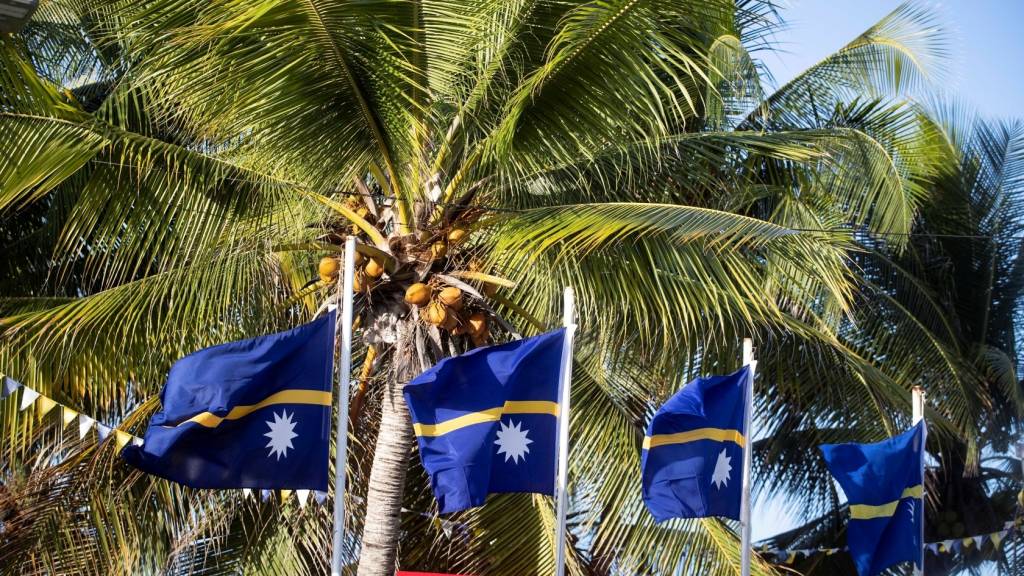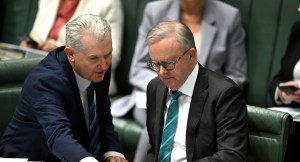Australia’s detention camps in Nauru have been plagued by public scandals, including repeated reports of corruption and last week’s revelation that multimillion-dollar government security contracts had been awarded to the controversial Safe Hands Group.
But we have also just quietly marked the latest entry in two interrelated and much longer chapters of Australian history: the first concerning the ongoing collective punishment of migrants and refugees subject to indefinite immigration detention, and the second being our government’s reliance on neo-colonial relationships in the Pacific to launder domestic political problems.
Last week, the UN Human Rights Committee made interim orders preventing the Australian government from deporting a 65-year-old Iraqi refugee to Nauru to live out the rest of his life on the small island nation.
Related Article Block Placeholder
Article ID: 1172124
The man at the centre of the UN complaint, who is represented by the Human Rights Law Centre, is one of three selected — seemingly at random — by the Albanese government to test its expansive new “third-country removal” powers.
All three men were released from immigration detention following the High Court’s ruling in November 2023 that indefinite detention is unlawful. They were granted Bridging R Visas, subject to conditions that the High Court found in November last year to be unlawfully punitive — including a 10pm to 6am curfew condition and the wearing of an ankle bracelet. Their removal to Nauru is the government’s third attempt at subjecting them to lifelong punishment.
The third-country removal powers were rushed through parliament in the final sitting week of 2024 after the Coalition and media had hounded Labor for months over its handling of immigration detention. The powers allow the Australian government to enter into a paid arrangement with any other country in the world to receive people who Australia wishes to deport, irrespective of the conditions they might face in the other country, or even whether they might be detained there. In effect, these powers extend Australia’s darkly innovative “offshore detention” policies across the globe.
Independent. Irreverent. In your inbox
Get the headlines they don’t want you to read. Sign up to Crikey’s free newsletters for fearless reporting, sharp analysis, and a touch of chaos
By continuing, you agree to our Terms & Conditions and Privacy Policy.
In September 2024, before the new laws were introduced to parliament, the Albanese government began discussions with the government of Nauru on a 30-year deal to receive people from Australia. An agreement regarding an initial three people was formally reached in early 2025. While Australia had requested those people be granted “indefinite stay visas”, Nauru granted them visas valid for 30 years. It is unclear what will happen after that 30-year period.
Importantly, there is no right of family reunification or pathway to citizenship. No serious assessment was conducted by the Albanese government of the dangers that refugees might face during their lifetime stay in Nauru, either when making the agreement or applying for their visas.
The initial agreement, as detailed in a recent court judgment, includes a list of rights that will purportedly be protected, without any details as to how. Such promises are on par with previous assurances that refugees in detention camps would be treated in accordance with human rights standards, which have been contradicted by 24 years of brutal experience.
Related Article Block Placeholder
Article ID: 1185360
The deal was controversial among the Nauruan public. But as unpopular as the arrangements may have been, the reality is that Nauru is reliant on the revenue to fund urgent climate adaptation measures and secure the future of the island.
Australia has a long colonial entanglement with Nauru, having previously administered the island as a protectorate after WWI and overseen the strip-mining and near exhaustion of its natural resources. The resulting reliance on Australian aid provided fertile ground for the establishment of offshore detention camps in 2001.
Now, as sea levels rise, Nauru looks to a future where 90% of its mostly coastal population is relocated to a small area of several kilometres in high-lying regions of the country. Australia, one of the highest per-capita greenhouse gas emitters and fossil fuel exporters in the world, is poised to deepen the social impacts of the climate crisis by expanding its offshore warehousing operations, with equal contempt for the migrants and refugees impacted and the people of the Pacific.
The fight against the new third-country removal powers is about more than just three men. It is about putting a limit on our government’s ability to punish migrants and refugees, and to exploit the people of our neighbouring nations who are faced with climate collapse. While the UN’s intervention might halt these deportations for now, it is up to all of us to collectively determine where we draw that line, and the type of society we are prepared to become.
Should the government stop making Australia’s refugees other countries’ problem?
We want to hear from you. Write to us at letters@crikey.com.au to be published in Crikey. Please include your full name. We reserve the right to edit for length and clarity.



